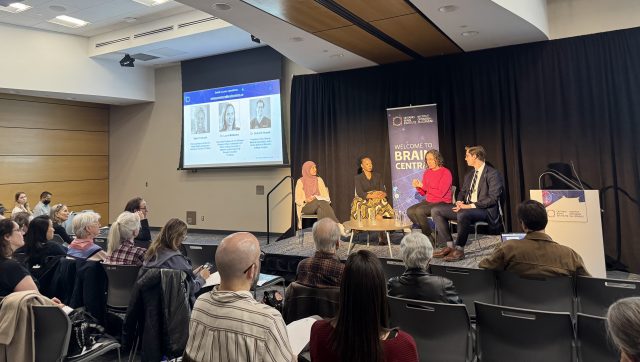Stress is a normal response to a danger or threat. Everyone feels stress – it is what drives us to succeed. A problem arises, however, when we have too little stress (a problem many of us cannot relate to) or too much stress, especially if the stress becomes overwhelming or prolonged.
When the brain perceives a stressful situation, it releases a stress signal – either cortisol or adrenaline. In small amounts, these chemicals can have a positive effect on the brain, for example, the adrenaline rush before a deadline helps you get that extra focus that you need to get your project done.
When you have too much stress, however, your brain begins to work less efficiently. Two brain regions are particularly sensitive to stress – the hippocampus and the prefrontal cortex.
The hippocampus is crucial for learning and memory. Under stressful situations, therefore, your memory can become impaired. Fortunately, when the stressful situation ends, your memory returns. Have you ever tried to answer a question in a big meeting and drawn a complete blank? The answer always comes back to you after the meeting is over.
The prefrontal cortex is responsible for our ability to multi-task. It helps us plan and manipulate information and direct our attention to specific things in our environment (and ignore others). In stressful situations, your ability to multi-task is decreased, and your ability to choose what you pay attention to is also impaired. This is why you burn the chicken when you are trying to stop your children from fighting after a long day at work.
Excessive stress is often the result of too many demands being placed on us, feeling a lack of control over important things, or feeling that our well-being is threatened. In extreme situations, this can even lead to post-traumatic stress disorder.
WHAT SCIENTISTS KNOW:
- A very powerful stressor is to be put in charge of something that you have little or no control over.
- Reducing stress levels is a complex and difficult process. Scientists still have difficulty reducing a rat’s stress! There are no easy fixes. To make matters worse, people sometimes get stuck using ineffective coping strategies for stressful events.
- There is natural variation in how people deal with stressful events. Some tend to see events in a more negative light than others. This can make things seem worse than they actually are.
- Having lots of social support and connectivity is important for health and optimizing stress.
WHAT YOU CAN DO:
You can take control of your brain health. Here are some tips on how to reduce the impact of stress on your brain:
- Live in the moment! Do not compare your stressful situation to negative events that you have experienced in the past – or negative events that you worry about happening in the future.
- Remain open to seeing stressors in different ways and using different techniques to cope.
- Grow your social support network. It will help you in times of stress.
This advice is easy to give, but very hard to follow. It takes a lot of time and practice to change our habits. Many people are embarrassed to seek help. However, if the stressors you’ve experienced have gotten to you, then it’s time to ignore whatever is standing in the way of feeling better, and get the help you need. Preferably, this should come from a professional who was trained to provide help.
Celebrate Brain Awareness Week by taking control of your brain health. Join a social group.
With thanks, great ideas contributed by:
- Dr. Hymie Anisman, Institute of Neurosciences at Carleton University
- Dr. Robert Sapolsky, Neurology and Neurological Sciences at Stanford University



